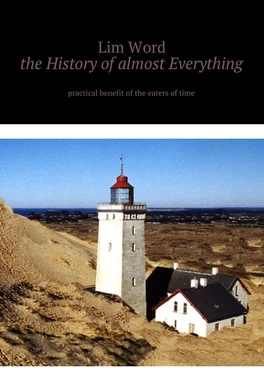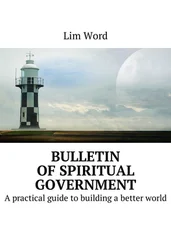So, most of the factories work around the clock. Expensive, usually – written out from abroad machines, require the prompt return. A 12-hour working day is common. To be precise, it’s a whole day: two six-hour shifts. The sense of this schedule is that the proletarian, who has slept a bit, will work out in more than two outlets in more than one long shift. The working day at the same time loses its significance, the day, weeks and months blur into the gray haze of hopeless labor; the hail of the master, the spinning of the gears of the machine, and so on, to the like.
There are no vacations in principle. To at least somehow take a breath, the worker is forced to resign, change his place of work, wander around the country.
In 1905—1906 the owners of enterprises expose a large number of workers outside the gate, trying to protest, or simply, somehow, in a human way, to engage in a dialogue. Proletarians supplement the world of crime or the “flying squads” of insurgent-Socialist-Revolutionaries. The way back to highly skilled productive work for them, who are on the black list, is impossible. Since 1916, labor has been militarized. Protests are prohibited at all. Now the workers are no longer willing to give up their overtime orders, remaining at work for 18 hours quite officially.
There are now such clever people who proclaim: the worker must work as much as possible, but how else, after some time, everyone will be happily happy. But, one must think that every person on the planet considers himself to be a unique, unique personality, he wants to organize for himself a wonderful life, full of adventures, tests and unexpected turns. Attitude to yourself as a “cook’s son” (by the definition of Emperor Alexander III) or a cricket, due to know its own pole, causes internal tension, and readiness for large-scale social performances.
In addition, the economy is a very paradoxical thing. If the workers and peasants only work “like horses” day and night, they practically do not buy industrial goods (watches, furniture, beautiful utensils, conditionally, delicacies like coffee and sweets, “outfits,” books, cars), lose interest in anything other than simple food, and the market, without any special reason, is overstocked.This naturally leads the production in general, to a serious crisis.The working day of reasonable duration, the contractual capacity of the parties on wages and social protection, humane attitude to work tnikam – that’s what could prevent the horrific upheavals of a hundred years ago.
Orthodox Church. On the eve of the Revolution, the Russian Orthodox Church is populated by 72% of the total population of the country. In exchange for abundant financial assistance, the state instructs the hierarchs of the church to conduct the propaganda propaganda, the formation of “loyalty feelings” among the population. In a word, the ROC, alas, falls into the heresy of phyletism (state religion), and catastrophically loses trust in “ordinary” parishioners, whose interests it should have defended in every possible way.
Before that, the Russian Orthodox Church has suffered two heavy blows. The first is the very moment of its appearance in Russia, from the presentation of not inspired prophets, monks-pilgrims, preachers, but the prince and his armed squad. The second is the reforms of Patriarch Nikon. As it suddenly turns out that for six and a half centuries people prayed and did not believe as they should. The Christian faith has taken root, has become universal, permeated the people’s soul, overgrown with numerous oral and written traditions. It could even be assumed that Vladimir’s baptism with “fire and sword” was an unfortunate misunderstanding, at the time when (988) the message spread that the Apocalypse would take place in the Millennium of the Nativity of Christ; and, therefore, the conversion of pagans into Christians should be accelerated by all means, for their own good. But no. The patriarch and the sovereign, after consulting with each other, again do everything their own way. Many poods of anathematized sacred Russian books are sent to the fire.
It must be understood that ritual has the highest value for people of the Middle Ages. The performance of the ritual in its original version seems to be akin, let’s say, to the control of the aircraft. Only when the pilot presses the buttons according to all instructions, the airplane flies, and delivers the person to the destination – in Paradise. Many people who want to save their souls depart from the latest regulations, even under pain of death. Sometimes the intensity of the struggle of the authorities with their own, sincerely believing subjects reaches the heat of persecution of heretics (and real sorcerers) by the Spanish Inquisition. In total, twelve or fifteen thousand ancient believers perish during the reign of the “Tishayshiy”, Feodor and Tsarevna Sophia. Peter the First, in the Galantian century that has already opened, largely alleviates the fate of these persecuted, however, imposes a double tax on them, and still, under pain of cruel punishment, forbids building their own temples (and sending rituals to the already existing ones). A number of state fines for non-attendance of the confession, improper appearance during the hearing of the service, etc., charged by a “good man” attached to the temple are introduced. Church hierarchs are entitled to salaries from the treasury. If earlier the lower parish clergy were selective – parishioners chose from their environment a suitable person (usually from spiritual families) and were sent with a charter to be “put” to the local hierarch, now they are no more.
The colorful vagrant “sacrificial” clergy disappears completely – from the abbots of small parishes, at times freely engaged in the service of prayer at home, the blessing of the meal, the reading of Sorokoust, etc. The spiritual rank is now firmly attached to the place of service. And, finally, the priest is obliged to help the government in the search and catching those who do not approve of the king’s activities, even if this leads to the discovery of the sacred mystery of confession.
Monks are ordered to reside in monasteries “non-existent”, any exit to the walls of the institution (two, three hours) can occur only on the written (with seals) permission of the abbot.
According to the “Spiritual Regulations” of Peter the Great, the spiritual schools of the seminary (from the Latin seminarium – nursery school) are being created. As we study the potential priests in such schools, we know, in particular, from N. Pomyalovsky’s book Essays on Bursa.
As a logical result, between the flock and the shepherds stands a wall of alienation and misunderstanding. The clergy is locked in itself, not refreshed by the influx of new forces from outside, it becomes just such an aspiring clan to survive.
To top it all off (not without the influence of Stolypin’s activities, obviously), the state is destroying the rural community, by and large, which is the original source of morality and religiosity.
Just as a branch of the state, the ROC supports an unpopular war with (far from being a fascist, quite Christian) Germany, urging the people to certainly bring it “to the victorious end.”
Before the October Revolution, there are 54,000 churches in Russia. But, most importantly, these are people. The parishioners, many of whom are languishing in total poverty, dull workers’ hostels, are leaving the church. A completely different cult awaits them.
The Russians. Admittedly, the common affiliation to this ethos does not at all alleviate the contradictions between the poor and the rich, educated and illiterate, nobles, the bourgeoisie, workers and peasants. Similar is possible in the countries of Central Europe – England, Germany, Denmark, Switzerland… The German worker in an interview with the capitalist, from which he intends to improve working conditions, also adds something like: “We are with you both soldiers, genosse …". It works. In Russia, the words “We are Russians” mean practically nothing. For many centuries, Russian kings have annexed large territories. Residents of the newly-acquired areas of the Empire at the same time (those who lost the war), at the caprice of the monarch, have freedoms, opportunities, in general, higher than the indigenous inhabitants of the central regions. A wealthy Caucasian mountaineer can easily buy a Russian girl for his use – quite decent – if only he had the money.
Читать дальше












